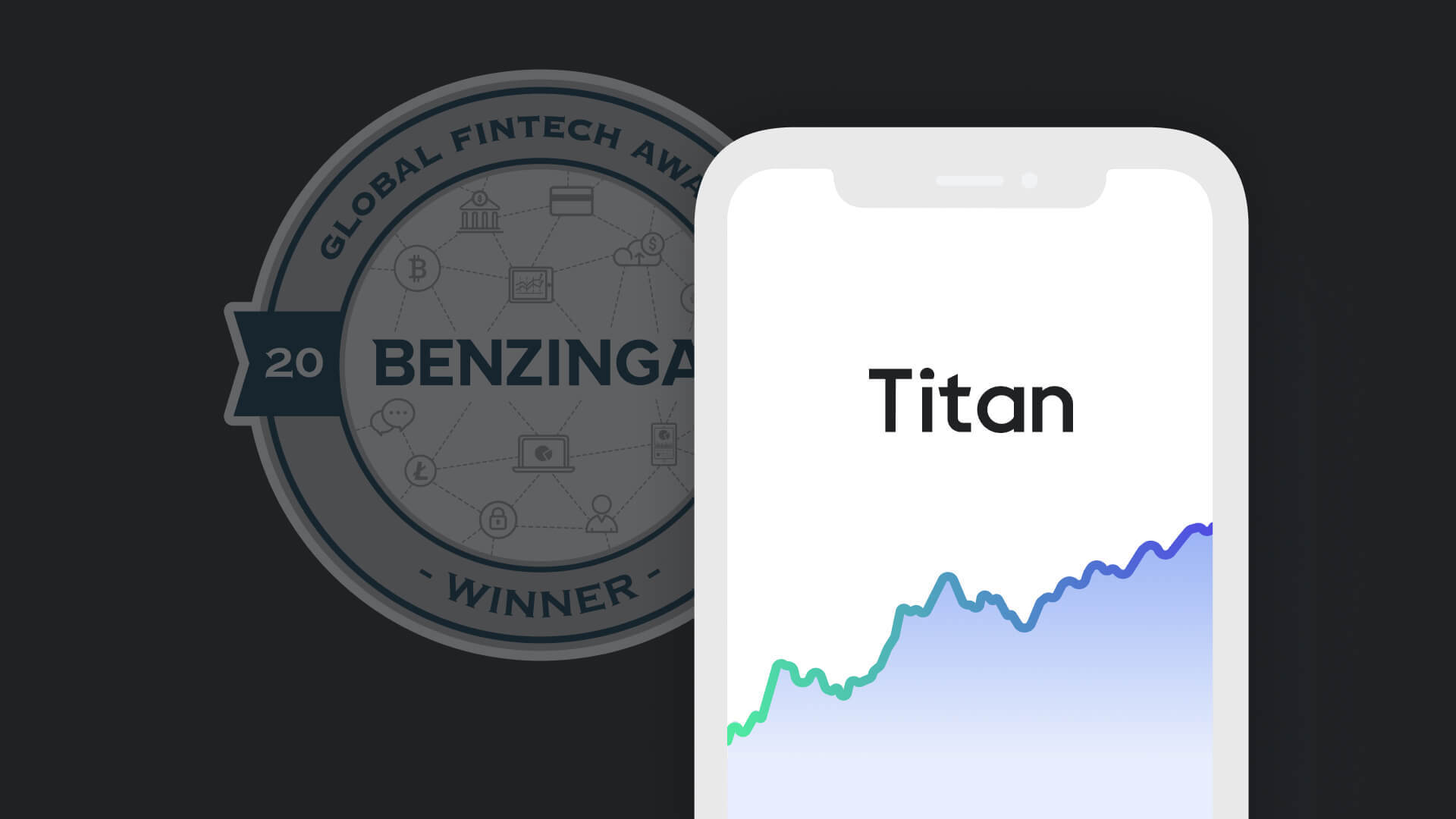| | | | | | | Presented By Titan | | | | Axios Markets | | By Dion Rabouin ·Jan 13, 2021 | | Good morning! Was this email forwarded to you? Sign up here. (Today's Smart Brevity count: 1,210 words, 4½ minutes.) ‼️ Don't sleep: Axios' Dan Primack and I are hosting a virtual event on the pandemic's impact on small businesses today at 12:30pm ET, featuring my interview with Rep. Ro Khanna (D-Calif.) and Dan's with World Central Kitchen founder José Andrés. 🎙 "Teddy Pendergrass — cooler than Freddie Jackson sipping a milkshake in a snowstorm." - See who said it and why it matters at the bottom. | | | | | | 1 big thing: Democrats are looking to overhaul banking |  | | | Illustration: Aïda Amer/Axios | | | | Now in control of Congress, Democrats are looking to give the U.S. financial system a progressive overhaul, incoming Senate Banking Chairman Sherrod Brown said Friday. What we're hearing: "This committee in the past has been about Wall Street. As chair I'm going to make it about workers and their families and what matters to their lives," Brown told reporters. - "Under Senate Republicans we've had government intervention to put its thumb on the scale for corporations at every turn and their wealthy friends, and the free market for everyone else.
- "We're going to change that."
Why you'll hear about this again: Atop Brown's ambitious priority list — which also features sweeping action on climate change, housing assistance and racial justice — is a push for public banking that would create a system of government-administered bank accounts that are not profit-driven. - The accounts would be similar to those provided by the Federal Reserve for large banking institutions.
Watch this space: Democrats also still be looking to rewire the Fed's role in helping to underpin the economy in times of economic stress to perform monetary policy from the bottom up rather than the top down to reduce the inequality that has been a hallmark of the coronavirus recession. - Brown has been in consistent contact with expected incoming Treasury Secretary Janet Yellen, he told Axios, noting that she has "become a mentor and adviser."
Yes, but: Much of this agenda has already been proposed and rejected by congressional Republicans and may be a tough sell to moderate Democrats who will be needed with a slim majority in the House and a 50-50 Senate. - Further, representatives from the banking sector, who all declined to comment on the record, were generally dubious of Brown's ideas.
- Many warned that putting more responsibilities for banking in government hands — or overburdening the Fed with them — could lead to a less efficient system that did more harm than good.
State of play: Still, the plan is already in motion. - Reps. Alexandria Ocasio-Cortez and Rashida Tlaib put forth similar legislation for public banking last year and Brown says he and House Financial Services Chair Maxine Waters will be "coordinating directly, consulting frequently and I would be shocked if we aren't going in the same direction on damn near everything."
The bottom line: "The unifying theme for progressive Democrats is that they want to flatten pricing. They want wealthier customers to really be subsidizing less wealthy people who are accessing financial services," Jaret Seiberg, financial services and housing policy analyst for Cowen Washington Research Group, told me on the "Voices of Wall Street" podcast in October. - Additionally, "they want the government to be financing more financial services."
|     | | | | | | Bonus quote: Central banks may not be good commercial banks | | In a potential battle over the financial system, banks and their representatives are likely to highlight research from the Bank for International Settlements, the so-called central bank of central banks, which found that tasking governments or central banks with commercial bank functions may be a "thought experiment [that] has gone too far." What it means: "There are historical instances of one-tier systems where the central bank did everything," BIS general manager Agustín Carstens said in June 2019 speech. - "In the socialist economies before the fall of the Berlin Wall, the central bank was also the commercial bank. But we cannot hold up that system as an example of better customer service."
- "Less dramatically, publicly owned banks in many economies are hardly paragons of efficient allocation of funds or of good service."
|     | | | | | | 2. Catch up quick | | Affirm priced its Class A IPO shares at $49 each, a further increase from an expected $41 to $44 range and well above the original range of $33 to $38, valuing the company at more than $12 billion. (MarketWatch) Visa terminated its proposed $5.3 billion purchase of analytics provider Plaid after a challenge from the Justice Department, which alleged in an antitrust lawsuit that Visa is a "monopolist in online debit." (Axios) Disney+ is taking market share from Netflix. For December, it accounted for 6% of the time consumers spent streaming while Netflix's share fell to 28% from 31% a year ago. (L.A. Times) |     | | | | | | A message from Titan | | Titan: A premier investment manager for millennials | | |  | | | | Need help with investing through COVID? Titan is the first premier investment manager for millennials. Titan was awarded 2020 advisor of the year by U.S News and ranked #1 out of 60+ advisors for returns in 2020. Download the Titan app to get invested in our award-winning strategies. | | | | | | 3. Confidence among Democrats and Republicans diverges |  Data: Morning Consult; Chart: Axios Visuals Following the insurrection at the U.S. Capitol last week, economic confidence among Republicans and Democrats has gone in opposite directions. What happened: While overall consumer confidence edged lower, according to Morning Consult's Index of Consumer Sentiment, dropping 0.64 points, confidence among Democrats rose nearly 4 points while it fell by 5.6 points among Republicans. The intrigue: It's "effectively impossible to isolate the impact on consumer confidence of the election results from that of the attack on the Capitol," Morning Consult economist John Leer says in a note. - "Were it not for the violence in Washington, Trump may not have publicly stated his intent to depart from the White House, potentially leaving the share of Republicans who believe the election would be overturned unchanged."
- "But following last week's events, just 13 percent of Republicans believe the election results would be overturned, down from 27 percent in mid-December. In this sense, the attack on the Capitol likely accelerated the decrease in consumer confidence among Republicans."
The big picture: Leer also notes that the riot at the Capitol overwhelmed the positive impact that consumers had factored in from checks arriving as part of the $908 billion coronavirus relief bill, saying the positive momentum has now "abated." - However, "[a]dditional fiscal stimulus in the form of federal unemployment insurance will provide consumers a boost once states begin distributing those funds later this month."
|     | | | | | | 4. Crypto investors "should be prepared to lose all their money" |  Data: FactSet; Chart: Axios Visuals Britain's top financial services regulator, the Financial Conduct Authority, on Monday warned that investments and lending products related to Bitcoin and cryptocurrencies come with "very high risks." "The FCA is aware that some firms are offering investments in cryptoassets, or lending or investments linked to cryptoassets, that promise high returns. Investing in cryptoassets, or investments and lending linked to them, generally involves taking very high risks with investors' money. If consumers invest in these types of product, they should be prepared to lose all their money." — U.K. Financial Conduct Authority |     | | | | | | 5. The worst may be over for shopping malls |  Data: Placer.ai; Chart: Axios Visuals Holiday traffic at malls was surprisingly not terrible, data tracking firm Placer.ai says in a new report analyzing foot traffic from more than two dozen malls across the country. The findings are "not as bleak as many had feared." By the numbers: Mall visits were within 30% of 2019's pace in October, the smallest decline since February (when traffic was up 10.7% over 2019), but the resurgence of COVID-19 cases caused visitor counts to reverse in November, declining 42.2% year over year. - December saw a holiday bounce back, with foot traffic down 32.4% from 2019's levels.
What's next: "Placer.ai's team thinks that 2021 could be a big year for malls, as customers are itching to get out and shop," Placer analysts said in a report. - "We'll have to wait and see what happens, of course, but it's likely that the most difficult stretch is in the past for many shopping malls."
|     | | | | | | 6. Tesla got unprecedented help from China during pandemic | | Tesla's booming vehicle delivery and its return to production during the coronavirus pandemic last year had a lot to do with the relationship the company and CEO Elon Musk have enjoyed with the Chinese government since 2018, Bloomberg Businessweek reports in its cover story today. What they're saying: "Again and again, [Tesla] has extracted perks other international companies have struggled to obtain, including tax breaks, cheap loans, permission to wholly own its domestic operations, and assistance constructing a vast facility at astonishing speed. Support from the government has helped Tesla turn China into its most important market outside the U.S." - And Musk's declarations that "China rocks" during a podcast and "I love China," during a meeting with Premier Li Keqiang have further ingratiated him with China's leaders.
The bottom line: "Elon's played the game very well," Bill Russo, a former Chrysler executive who's now the CEO of Automobility Ltd., a Shanghai-based consultant, tells the magazine. "But Tesla got this because it was in China's interest for Tesla to have it." |     | | | | | | A message from Titan | | "We founded Titan to even the playing field" - Joe Percoco, Titan CEO | | |  | | | | "Everyday investors are given two options: fend for themselves on Robinhood or be relegated to a passive ETF. Having worked at some of the most successful hedge funds in the world we knew there was a third way. That's why we started Titan." Download the Titan app to get invested in our award-winning strategies. | | | | Thanks for reading! Quote: "Teddy Pendergrass — cooler than Freddie Jackson sipping a milkshake in a snowstorm." Why it matters: On Jan. 13, 2010, the world lost one of its most amazing voices when legendary soul singer Teddy Pendergrass died of respiratory failure. Things I learned: Pendergrass was the lead singer on many of Philadelphia soul group Harold Melvin & the Blue Notes' most successful singles, including their no. 1 hits "If You Don't Know Me by Now" and "Wake Up Everybody." - Melvin was the founder of the group and sang lead on some songs, but Pendergrass was the group's breakout star.
| | | | Axios thanks our partners for supporting our newsletters.
Sponsorship has no influence on editorial content. Axios, 3100 Clarendon Blvd, Suite 1300, Arlington VA 22201 | | | You received this email because you signed up for newsletters from Axios.
Change your preferences or unsubscribe here. | | | Was this email forwarded to you?
Sign up now to get Axios in your inbox. | | | | Follow Axios on social media:    | | | | | |








No comments:
Post a Comment